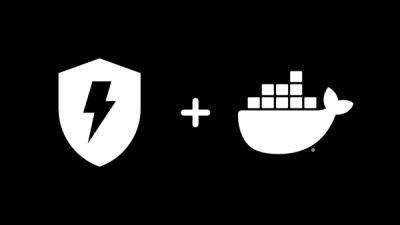DJS-Commander: A Library for Discord.js Projects
DJS-Commander is an easy-to-use JavaScript library that simplifies the process of handling commands, events, and validations in your Discord.js projects.
Discord.js version supported: v14
Documentation
You can find the full documentation here
Installation
To install DJS-Commander, simply run the following command:
For npm:
npm install djs-commander
For yarn:
yarn add djs-commander
Usage
const { Client, IntentsBitField } = require('discord.js');
const { CommandHandler } = require('djs-commander');
const winston = require('winston');
const path = require('path');
const client = new Client({
intents: [IntentsBitField.Flags.Guilds],
});
const logger = winston.createLogger({
level: 'info',
format: winston.format.json(),
transports: [new winston.transports.Console()],
});
new CommandHandler({
client,
commandsPath: path.join(__dirname, 'commands'),
eventsPath: path.join(__dirname, 'events'),
validationsPath: path.join(__dirname, 'validations'),
testServer: 'TEST_SERVER_ID',
logger: logger,
});
client.login('YOUR_TOKEN_HERE');
File Structure
Commands
DJS-Commander allows a very flexible file structure for your commands directory. Here's an example of what your file structure could look like:
commands/
├── command1.js
├── command2.js
└── category/
├── command3.js
└── commands4.js
Any file inside the commands directory will be considered a command file, so make sure it properly exports an object. Like this:
const { SlashCommandBuilder } = require('discord.js');
module.exports = {
data: new SlashCommandBuilder().setName('ping').setDescription('Pong!'),
run: ({ interaction, client, handler }) => {
interaction.reply(`Pong! ${client.ws.ping}ms`);
},
};
interactionclient is the discord.js Client instance.handler is the CommandHandler instance. You can use this to get access to properties such as commands.
Events
DJS-Commander assumes a specific file structure for your events. Here's an example of what your file structure could look like:
events/
├── ready/
| ├── console-log.js
| └── webhook.js
|
└── messageCreate/
├── auto-mod/
| ├── delete-swear-words.js
| └── anti-raid.js
|
└── chat-bot.js
Make sure each file exports a default function. Like this:
module.exports = (argument, client, handler) => {
console.log(`${client.user.tag} is online.`);
};
argument is the argument you receive from the event being triggered (you can name this whatever you want). For example, the messageCreate event will give you an argument of the message object.client is the discord.js Client instance.handler is the CommandHandler instance. You can use this to get access to properties such as commands.
Validations
DJS-Commander allows you to organize your validation files however you want to. Functions inside these files are executed in ascending order so you can prioritize your validations however you see fit. Here’s an example of what your file structure could look like:
validations/
└── dev-only.js
Make sure each file exports a default function. Like this:
module.exports = (interaction, commandObj, handler, client) => {
if (commandObj.devOnly) {
if (interaction.member.id !== 'DEVELOPER_ID') {
interaction.reply('This command is for the developer only');
return true;
}
}
};
interaction is the interaction object.commandObj is the command object exported from the command file itself. Properties such as name, description and options are all available within.handler is the CommandHandler instance. You can use this to get access to properties such as commands.client is the Client instance. (defined in your main entry point)
It's important to return true (or any truthy value) if you don't want the command to be executed (this also ensures the next validation that was queued up is not executed).



